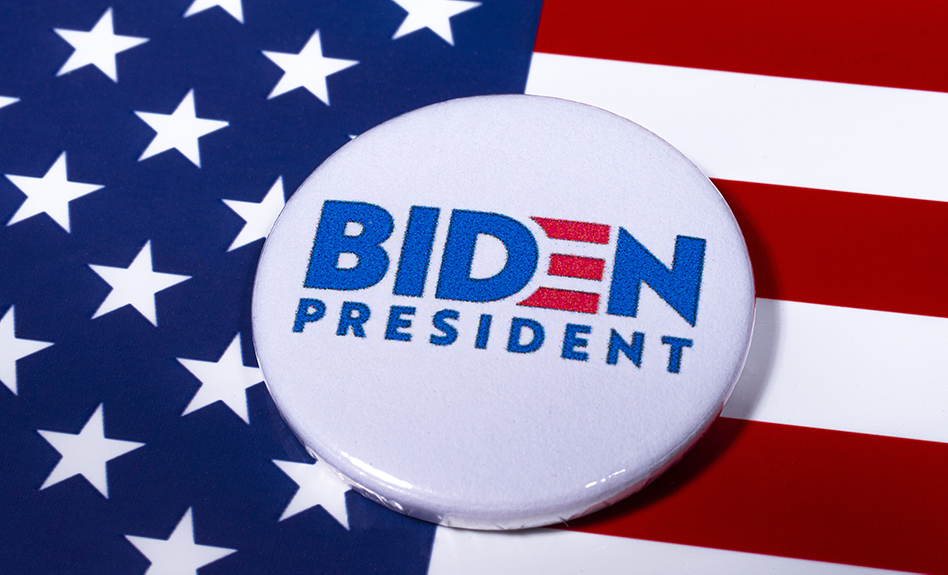
Considering the trajectory of current polling, former Vice President Joe Biden appears to be the current favorite to become the next president of the United States. A deciding factor for some workers may come down to the question of whose policies would be friendlier to their rights.
Let’s get straight to the point: a Biden administration would be far friendlier to workers. Unlike president Trump, Biden has outlined specific policies on his platform regarding workers’ rights. The only real question is how many of Biden’s proposals and promises will become law.
Employment Contracts
With the help of Jimmy John’s, it’s getting harder for employers to enforce noncompete agreements, especially on lower-wage earners. Biden plans on continuing this trend by drastically restricting the use of noncompete agreements, only allowing them in limited situations where they’re used by employers to reasonably protect themselves and not to unfairly restrict an individual’s ability to earn a living.
Biden would also ban no-poach agreements among businesses to not hire workers from similar businesses, which make it harder for employees to negotiate better terms of employment due to nearby businesses in the same industry being contractually barred from hiring them. Biden has also stated that he will support legislation that bans employers from requiring employees to enter contracts which require their employees to sign away their rights to litigate in court or file a class-action lawsuit.
Workplace Diversity and Discrimination Protections
Biden supports the Equality Act, which bans discrimination based on sexual orientation and gender identity in employment, education, public accommodations, public facilities, housing, credit and the jury system and would essentially take the Supreme Court decision outlawing this type of discrimination under Title VII of the Civil Rights Act of 1964 and also apply it to non-employment settings.
A Biden administration would also take steps to bring more transparency to workplace diversity. One proposal would require employers to publish how diverse their workforce is, including upper management. Another proposal mandates that employers reveal the efforts they have made to accommodate prospective and current workers who have disabilities. Finally, federal contractors would need to show what they have done to diversify their workforce with members from underrepresented groups.
Worker Wages
Biden says that he would do several things to improve the wages of workers, but there are three notable steps he would take.
First, he would increase the federal minimum wage to $15.00 an hour. Second, Biden would expand the number of workers eligible for overtime pay. Specifically, he would reinstate the Obama administration’s proposed rule that sought to increase the overtime eligibility threshold to $913 per week instead of the lower $679 per week as advocated by the Trump administration.
Third, Biden would find a way to get the Paycheck Fairness Act enacted. This law would tackle the gender wage gap by making it easier for plaintiffs to file class-action lawsuits alleging pay discrimination; stopping employers from punishing employees for discussing their compensation with coworkers; preventing employers from requiring salary history information from job applicants or otherwise using salary history information when deciding on a new hire (subject to a few exceptions); and allowing plaintiffs in sex-based wage discrimination lawsuits the ability to recover the same legal remedies that are available to plaintiffs in other employment discrimination cases.
Workplace Safety
Biden plans on tackling workplace safety in several ways, consisting of making changes to OSHA and the Mine Safety and Health Administration to expand their enforcement efforts, including increasing the number of investigators. This is a very important right now because of OSHA’s relatively lax efforts to keep workers safe from the coronavirus. There would also be a reinstatement of the Fair Pay and Safe Workplace rule that Trump previously blocked.
Paid Leave
Democrats in Congress have been pushing for more comprehensive paid leave for a while now. Trump helped make some progress in this regard with the FEPLA, but Biden intends to do more by pushing for the enactment of the FAMILY Act and the Healthy Families Act. The FAMILY Act would provide 12 weeks of paid family or medical leave to employees while the Healthy Families Act would make it possible for workers to have seven days of paid sick leave.
Organized Labor
Given Biden’s perceived ability to connect with blue-collar voters, it’s no surprise that he has an extensive list of objectives for improving workers’ ability to collectively bargain. Some of these objectives include:
- Pass the Public Service Freedom to Negotiate Act and the Public Safety Employer-Employee Cooperation Act, providing unionization rights to state and local government employees.
- Enact the Protecting the Right to Organize Act which restricts employers’ attempts to stop employees from going to union meetings and would, among other things, use a more employee-friendly test for classifying workers as employees or independent contractors and stop employers from enforcing employment contracts that bar employees from joining or bringing a class action lawsuit.
- Reinstate the “persuader rule,” which required employers to report activities and communications that employers (or their consultants) took to influence employees deciding on how to exercise their collective bargaining rights.
- Hold executives personally liable for interfering with employees’ union rights.
- Add new requirements for employers to negotiate in good faith during collective bargaining talks with employees.
- Require companies wishing to bid on federal contracts to promise that they would not interfere with their employees’ collective bargaining.
- Eliminate state laws that stop unions from collecting dues from any worker who benefits from union representation.
The Bottom Line
It is unreasonable to assume that all these proposals will become law. However, it is hard to argue that a Biden administration wouldn’t be better for the average worker than the continuation of the Trump presidency. These expansions of worker rights will largely depend on which party controls Congress and the extent to which Biden intends to follow through on these campaign promises.




